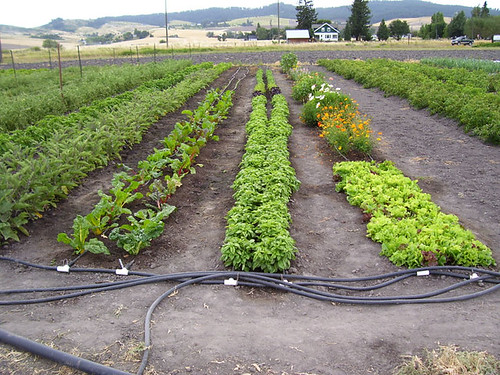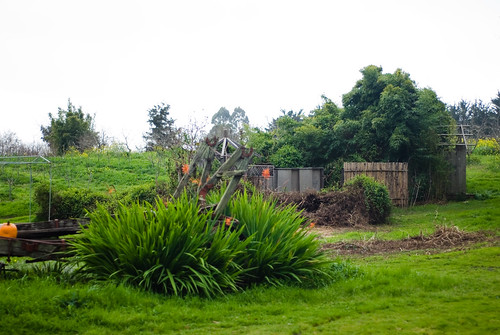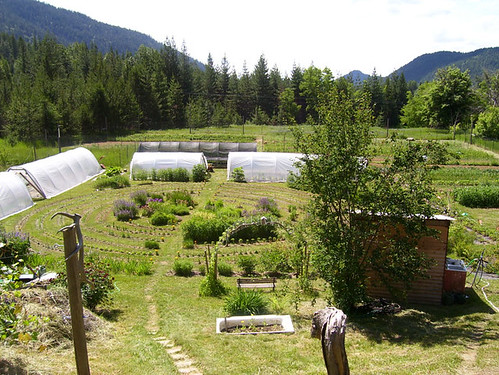GM-Free Organic Agriculture to Feed the World

EXCERPTS:
International panel dispels aggressive corporate propaganda
A fundamental change in farming practice is needed to counteract soaring food prices, hunger, social inequities and environmental disasters. Genetically modified (GM) crops are highly controversial and will not play a substantial role in addressing the challenges of climate change, loss of biodiversity, hunger and poverty. Instead, small-scale farmers and agro-ecological methods are the way forward; with indigenous and local knowledge playing as important a role as formal science. Furthermore, the rush to grow crops for biofuels could exacerbate food shortages and price rises.
These are the conclusions to the most thorough examination of global agriculture, on a scale comparable to the Intergovernmental Panel for Climate Change. Its final report, The International Assessment of Agricultural Science and Technology for Development (IAASTD), was formally launched at a plenary in Johannesburg, South Africa on 15 April 2008 [1-3] and simultaneously released in London, Washington, Delhi, Paris, Nairobi and a number of other cities around the world.
The IAASTD is a unique collaboration initiated by the World Bank in partnership with a multi-stakeholder group of organisations, including the United Nations Food and Agriculture Organisation, United Nations Development Programme, United Nations Environmental Programme, the World Health Organisation and representatives of governments, civil society, private sector and scientific institutions from around the world [2]. The actual report runs to 2 500 pages, and has taken more than 400 scientists 4 years to complete.
In one mighty stroke, it has swept aside years of corporate propaganda that served as a major diversion from urgent task of implementing sustainable food production for the world. As UK’s Daily Mail editorial commented [4]: “For years, biotech companies have answered critics by insisting genetically modified crops are essential to bringing down food prices and feeding the world's hungry. Well, now we know they’re not.” 
Biotech industry and US out in the cold
The plenary was marked by some perennial disagreement over biotechnology and trade. During a long debate over biotechnology, the meeting very nearly collapsed [1]. The United States and Australian government delegates objected to the wording in the synthesis report that highlighted concerns over whether the use of GM in food is healthy and safe.
Syngenta and the other biotech and pesticide companies had already abandoned the assessment process late last year. The impasse at the plenary was broken when the two countries agreed to a footnote in the report indicating their reservations about the wording, and to accept the report as a whole, along with Canada and Swaziland, but without adopting the report.
GM biotechnology and trade had been thoroughly debated over the four-year IAASTD process, and the final wording reflected scientific evidence. The report says biotechnology has a role to play in future though it remains a contentious matter. It further notes that patenting of genes causes problems for farmers and researchers.
The other 60 countries represented at the plenary adopted the report.
GM crops not the answer
Biotech companies, trade bodies and associated scientists have exploited the food crisis to step up their propaganda for GM crops. And the UK government’s Economic and Social Research Council (ESRC) has been exposed for misusing substantial public funds to support marketing GM crops to UK farmers and issuing a misleading press release on how UK farmers are “upbeat” about GM crops [11, 12] (Marketing Masquerading as Scientific Survey and "UK Farmers Upbeat about GM Crops" Debunked, SiS 38)
Professor Watson told the Daily Mail [3]: “Are transgenics the simple answer to hunger and poverty? I would argue, no.”
He said much more research was needed to establish whether they offer benefits and do not harm the environment. The industrialisation of agriculture, of which GM is a part, has led to the heavy use of artificial fertilisers and other chemicals, and these have harmed the soil structure and polluted waterways. The leeching of the soil of essential minerals means food is less healthy than 60 years ago.
The IAASTD states [10]: “Assessment of the technology lags behind its development, information is anecdotal and contradictory, and uncertainty about possible benefits and damage is unavoidable.”
The authors also warned that the global rush to biofuels was not sustainable. “The diversion of crops to fuel can raise food prices and reduce our ability to alleviate hunger. The negative social effects risk being exacerbated in cases where small-scale farmers are marginalised or displaced from their land.”
Professor Janice Jiggins of Wageningen University, one of the scientists co-authoring the IAASTD, questioned whether GM crops have been proven as safe [3]: “There are many legitimate concerns about the presence of transgenics in food, as well as the safety standards that might be appropriate as these enter into animal and human food,” she said.

Etiquetas: Alternativas, IAASTD, Organic

0 Comentarios:
Publicar un comentario
Suscribirse a Comentarios de la entrada [Atom]
<< Página Principal